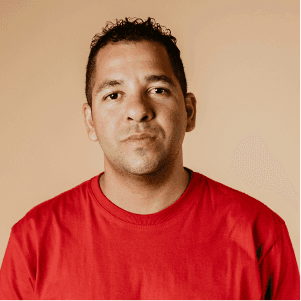兄 vs 弟 – Older Brother vs Younger Brother in Japanese
Ever wondered why there are different words for “brother” in Japanese? Unlike English, which uses “brother” for both older and younger siblings, Japanese clearly distinguishes between the two:
兄 (ani) means “older brother.”
弟 (otōto) means “younger brother.”
This difference reflects more than just age—it highlights deep-rooted cultural values around hierarchy, respect, and relationships.
In this guide, we’ll explore the meanings of 兄 and 弟, their cultural importance, and how to use them correctly in real-life situations.
Understanding 兄 (Ani) and 弟 (Otōto)
In Japanese, family terms change based on both age and perspective. When talking about your own siblings, you use humble terms. When referring to someone else’s siblings or speaking politely, you add honorifics.
Role | Casual (Own Brother) | Polite (Other’s Brother) |
|---|---|---|
Older Brother | 兄 (ani) | お兄さん (onii-san) |
Younger Brother | 弟 (otōto) | 弟さん (otōto-san) |
You may also hear affectionate versions like お兄ちゃん (onii-chan)—commonly used by children or in close relationships.
Cultural Significance
In Japanese culture, age matters—a lot. The concept of senpai-kōhai (senior-junior) relationships extends even to family. The older sibling (兄) is expected to lead, protect, and guide, while the younger sibling (弟) is taught to follow and show respect.
For example:
A younger sibling might say お兄ちゃん to express affection and warmth.
You’ll often hear this in anime or in families with a strong bond.
Usage in Daily Conversations
Let’s look at how these terms show up in everyday Japanese:
Talking About Your Siblings
Use 兄 and 弟 when describing your own siblings.
私には兄が二人います。
Watashi ni wa ani ga futari imasu.
“I have two older brothers.”
弟は高校生です。
Otōto wa kōkōsei desu.
“My younger brother is a high school student.”
兄は東京で働いています。
Ani wa Tōkyō de hataraiteimasu.
“My older brother works in Tokyo.”
Speaking Politely About Someone Else’s Brother
Add さん to show politeness when referring to someone else’s siblings.
お兄さんはお元気ですか?
Onii-san wa ogenki desu ka?
“How is your older brother?”
弟さんも一緒に来ますか?
Otōto-san mo issho ni kimasu ka?
“Will your younger brother come along too?”
お兄さんは大学生ですか?
Onii-san wa daigakusei desu ka?
“Is your older brother a university student?”
Addressing Your Brother Directly
When speaking directly to your brother, the choice of words depends on how close you are and the situation:
Expression | Usage |
|---|---|
お兄さん | Polite and respectful; can be used with your own or someone else’s older brother. |
お兄ちゃん | Casual and affectionate; commonly used by younger siblings or in informal settings. |
弟 (otōto) | Rarely used when speaking directly to your younger brother. Instead, just call them by name or nickname. |
Examples:
お兄ちゃん、助けて!
Onii-chan, tasukete!
“Big bro, help me!”
お兄さん、今日はどこに行くの?
Onii-san, kyō wa doko ni iku no?
“Where are you going today, big brother?”
ねえ、タクヤ(弟の名前)、ゲームしよう!
Nee, Takuya, geemu shiyou!
“Hey, Takuya, let’s play a game!”
(For younger brothers, names are more natural than calling them 弟.)
Frequently Asked Questions
Why does Japanese have separate words for older and younger siblings?
Because Japanese culture emphasizes respect and social hierarchy. Age and seniority influence how people speak and interact—even within families.
What’s the difference between 兄 (ani) and お兄さん (onii-san)?
兄 is the humble way to refer to your own older brother.
お兄さん is polite and used when speaking about or to someone else’s older brother.
Can girls use お兄ちゃん (oniichan)?
Yes! It’s a common, affectionate term used by girls for their big brothers—especially in informal settings or anime.
Conclusion
Understanding the difference between 兄 and 弟 gives you more than just the right words—it gives you insight into Japanese values of respect, age, and family roles.
If you’re just starting out, don’t stress! With tools like Sakuraspeak, you can practice using these terms in realistic conversations and get instant feedback—just like speaking with a real person.






